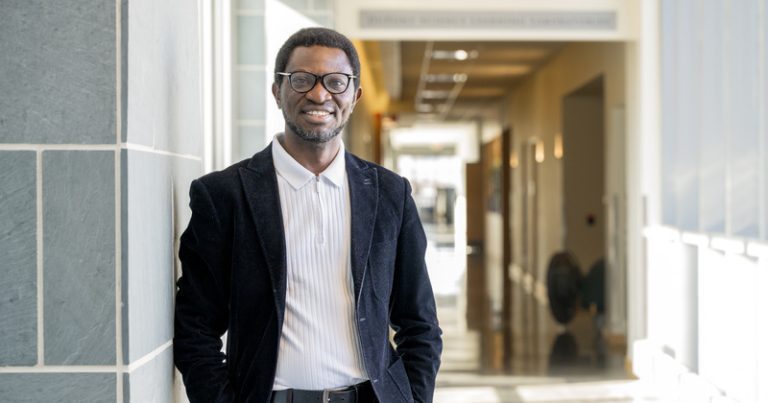Q: Why is it important for students to study physics?
Akubo: Having a mastery of physics is a game changer in today’s economy. Much of the ongoing basic research from disciplines such as medicine, chemistry, biology, veterinary science and physics benefits. Physics can contribute in powerful and influential ways or hinder students on their path.
Physics is also fundamental at home to understand and explain the phenomena around us.
Imagine for a moment that very young Johnny just watched a movie in which he saw a person who had put a pan on the stove mistakenly touch the handle of a spoon that they left in that pan – it would be hot. Johnny wonders how this is happening and shares his curiosity with a parent. This is a chance for the parent to explain that there is a transfer of heat energy by conduction through certain materials and to explain why pot handles are made of wood or rubber or plastic because this are heat insulators.
Physics and natural sciences are an everyday experiential subject that we breathe and live, even if we are not aware of it.
Q: What advice would you give to students considering secondary science education?
Akubo: The pandemic has exposed inequities in pre-K through 12th grade, and many students are still reeling and trying to make up for the loss they suffered. My classes teach my pre-service teachers to design lesson plans that think about these inequalities.
Prospective teachers should also be aware of developing their competence in teaching less homogeneous demographics in their classrooms. The majority of teachers come from white demographics and primarily women, but Delaware classrooms are becoming more diverse with increasing numbers of students of color.
That means teachers need to care about who their students are, where they come from, in terms of their racial identity, their gender identity, their socioeconomic identity. They can leverage this information to design their own teaching strategies or pedagogies. All of these are important.
In my classrooms, I highlight student-responsive teaching and culturally relevant pedagogies that challenge teacher candidates to think much more about who they themselves are, because if they understand their own identity, they can put these identities in conversations with their own students’ identities And then design lesson plans that can help bridge the differences and therefore have the greatest potential to teach increasingly equitably.


